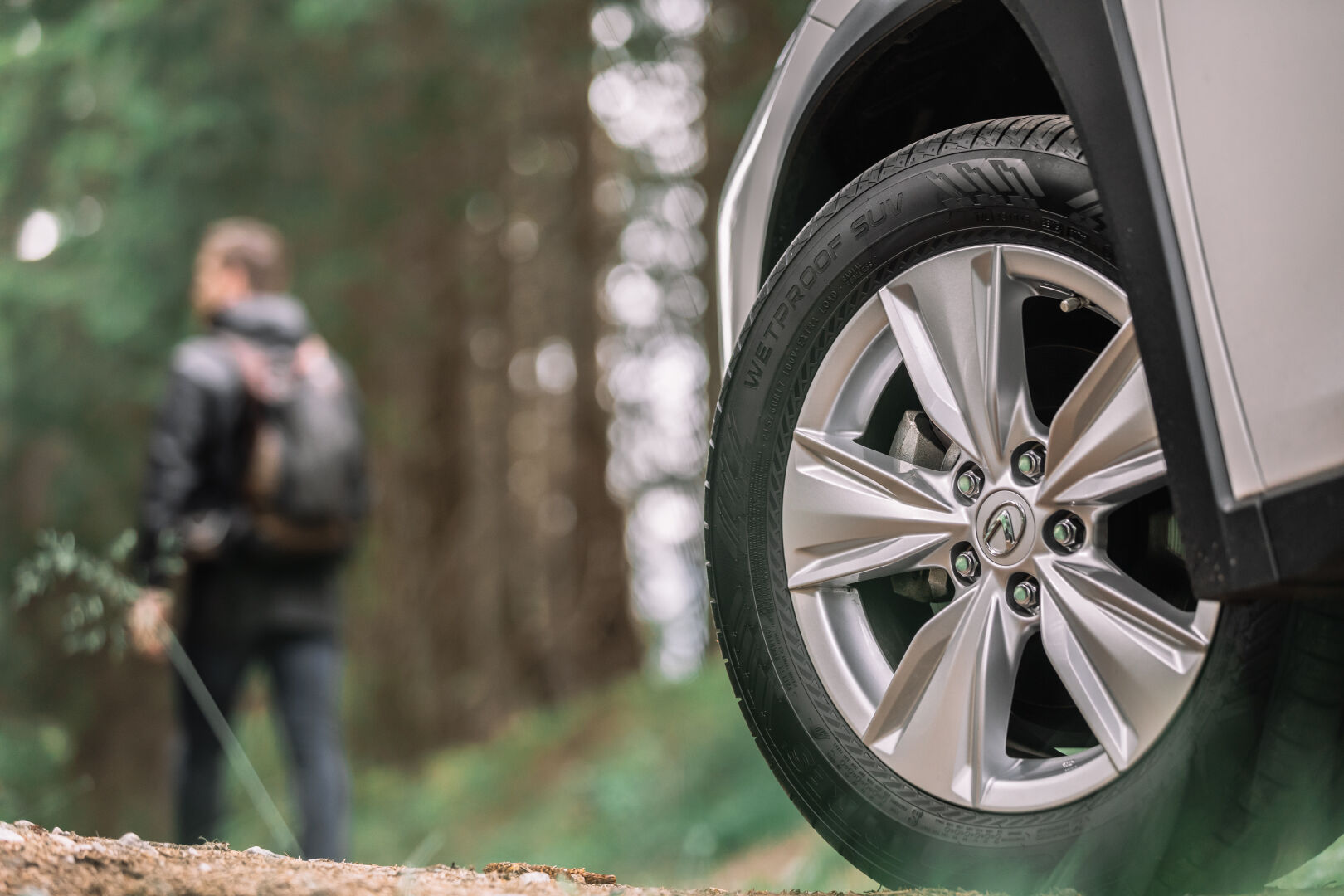
Tires have a direct impact on your vehicle's fuel efficiency. Find out how to choose fuel-efficient tires and consume less fuel while driving.
Tires have a direct impact on your vehicle’s fuel economy. You can decrease fuel consumption by choosing high-quality tires with low rolling resistance. Better fuel economy helps you reduce fuel costs and carbon emissions. This way, you can do your part as a car owner to lower the environmental impact of driving.
By choosing economical tires, you can drive more miles per gallon, reduce fuel costs, and drive more environmentally friendly. Nokian Tyres’ products are designed for excellent driving performance and safe, fuel-efficient traveling. Contact your local Nokian Tyres dealer and choose the optimal tires for your vehicle.
How do tires affect a vehicle’s fuel consumption?
Choose premium tires to lower your tires’ rolling resistance and, therefore, their fuel consumption. A set of tires is driven for around 32 000–48 000 kilometres. With more economical tires, the savings of driving with premium tires can add up to over 400 euros, depending on the price of fuel. The choice of tires is only one way to improve fuel economy, and how you drive and maintain your tires also has an effect on fuel consumption.
Tires affect fuel economy mainly through their rolling resistance, which is influenced by various factors. These include, for example, tire diameter, tire width, and the materials used to manufacture the tires. Monitor the condition of your tires regularly, as tire tread wear and tire pressure can have a great impact on rolling resistance.
Rolling resistance
Rolling resistance is the force opposing the motion of tires as they roll over a driving surface, leading to energy loss. This in turn affects your tires’ fuel efficiency. The main causes of rolling resistance are friction with the ground, and wind drag.
When rolling resistance is high, more energy is required to overcome this resistance, resulting in increased fuel consumption. The lower the rolling resistance, the more miles you can drive with a gallon of fuel. In addition to more economical driving, low rolling resistance reduces tire noise and enhances the overall driving experience.
You can reduce rolling resistance as much as possible by opting for high-quality winter tires and all-season tires, and by maintaining your tires properly.
Tire tread wear
The condition of your tires’ tread substantially impacts fuel efficiency. Worn tires are more prone to slipping, leading to increased fuel consumption. Tires with a higher tread depth have better traction and help reduce fuel consumption.
Monitor tire wear regularly to ensure that your tires perform as they should. We recommend replacing tires when their tread depth is 3 mm. Nokian Tyres has made it easy to check the tread depth on your tires. The surface of a tire has a driving safety indicator that tells you what level your tread depth is at. Remember to rotate tires regularly for more even tire wear.

Tire pressure
When tires are underinflated, they create more rolling resistance, making the engine work harder to move the vehicle. You can enhance fuel economy by using tire pressure levels recommended by your vehicle’s manufacturer.
A tire pressure monitoring system (TPMS) monitors that tire pressure does not drop all of a sudden. Note that even slight underinflation can create uneven wear patterns and increase the fuel consumption of your vehicle.
Correct tire pressure reduces rolling resistance, makes your tires last longer, and helps keep tire noise at a low level. We recommend checking tire pressure at least once a month. In addition, you should check your tire pressure before embarking on long journeys or carrying heavy loads.
More ways to increase fuel efficiency
The EU has set CO2 emission performance standards for new passenger cars and vans. You can also influence the CO2 emissions of driving and fuel economy in many ways:
- Choose premium tires with low rolling resistance
- Use the recommended tire size for your vehicle
- Avoid sharp acceleration and hard braking
- Use cruise control to maintain constant speed on highways
- Regularly monitor tire pressure
- Check tread depth and replace worn tires
The EU-tire label helps drivers improve the fuel economy of their vehicle by giving car owners valuable information about the fuel efficiency of tires. You can reduce the fuel consumption of your vehicle by choosing tires rated high on fuel efficiency in the tire label.
Nokian Tyres – enhancing fuel economy
Nokian Tyres’ winter tires, summer tires and all-season tires are designed to perform optimally while reducing fuel consumption with low rolling resistance. Choose high-quality tires for smarter driving, and get the best gas mileage out of your vehicle. If you want to know more about fuel economy and choose the right tires for your vehicle, contact your local Nokian Tyres dealer.
Please remember that it is the driver’s responsibility to ensure their tires are safe and suitable for their vehicle and to follow the vehicle’s manufacturer´s guidelines for proper use and maintenance. Consult your closest Nokian Tyres dealer or your vehicle’s manufacturer for specific advice.


